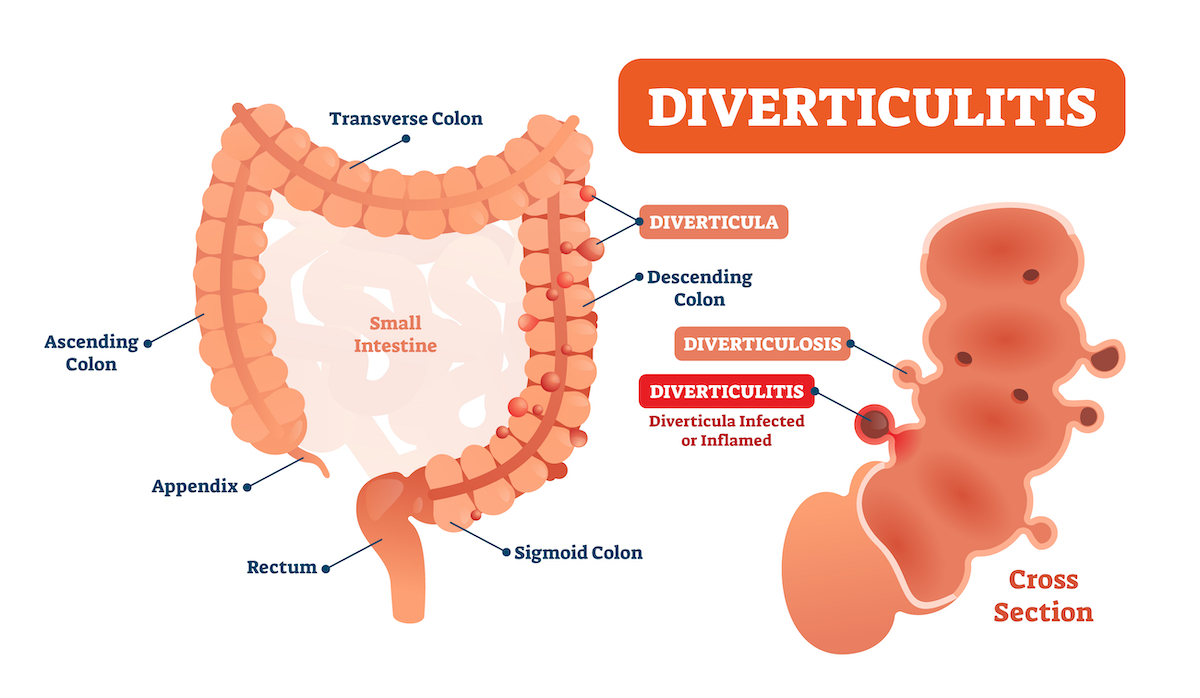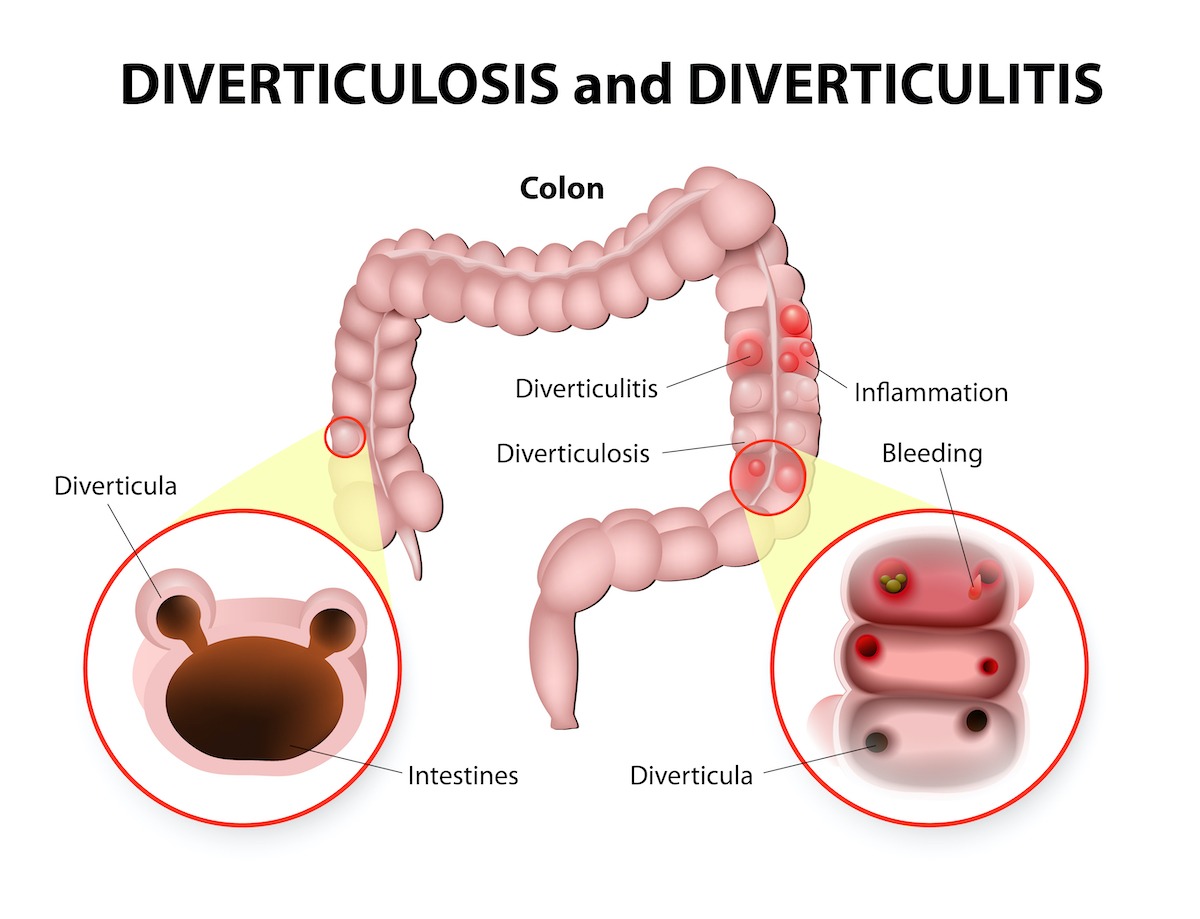Diverticular disease is a very common health problem in the United States – especially when we get older. Approximately 50% of the American population older than 60 will develop diverticulosis, and some of them will also develop diverticulitis. Over time, our digestive system can get weaker, when this happens, there is a chance that small bulging pouches develop in the lining of the digestive system. These pouches are called diverticula and are a very common and harmless condition. The presence of diverticula in the digestive system is called diverticulosis. When one or more of these pouches get infected and/or inflamed it gets very painful. This diverticula disease is called diverticulitis.

Cause & Risk Factors of Diverticulitis
Diverticula develop in the digestive system when the colon gives way to severe pressure. The exact cause of this is still unknown, but most medical scientists believe a low-fiber diet and constipation play a big part. Constipation causes extra stress to the walls of the colon, which makes it easier for the diverticula to develop in weakened linings. These pouches often develop in the lower parts of the large intestine.
Diverticulitis happens when the diverticula tear, this will lead to inflammation and sometimes infection. As people get older, the chances increase for developing diverticulosis. In fact, after age 60, the odds are 1 in 2! Diverticulitis is less common, but there are a few factors that increase someone’s chances. These include:
- Aging
- Overweight and obesity
- Smoking
- Lack of exercise
- Low fiber and or high animal fat diets
- Medication, like steroids and NSAIDs
Products that contain lots of fiber are vegetables, fruits, and whole grain products, like brown rice and oatmeal. High animal fat diets include high intakes of beef, pork, veal, lamb, and high-fat dairy products like whole milk and cottage cheese.
When you suspect a loved one, or you are suffering from diverticulitis, it’s important to visit your professional healthcare provider to tell him or her about your suspicions. If you ignore the symptoms of diverticulitis, you can get serious to potentially life-threatening complications. For example, rectal bleeding, abscesses & fistulas, obstructions & strictures, and perforation which leads to peritonitis,

Symptoms of Diverticular Disease
On the previous page, you could read that diverticulosis is a common and harmless condition, but it’s good to know you have it. Why you might ask? Well, this way you know when more severe symptoms happen you probably suffer from diverticulitis. Common symptoms of diverticulosis include:
- Tenderness of the digestive system
- Mild abdominal cramps
- Swelling and/or bloating
- Constipation
When you experience these symptoms it’s important to visit your professional healthcare provider, because these are also symptoms of harmful abdominal diseases, like appendicitis, gallstones, and inflammatory bowel disease. Your healthcare provider will examine you and tell you if it’s “just” diverticulosis or something worse. Symptoms of diverticulitis include:
- Pain/tenderness/sensitivity in the lower left side of the abdomen
- Fever
- Nausea & vomiting
- Chills
- Cramps in the lower abdomen
- Constipation
- Diarrhea
- Rectal bleeding
The most common symptom of diverticulitis is pain. This pain varies per person. Someone can experience increasing pain over several days, but the pain can also happen suddenly.
Treatment Options for Diverticular Disease
If your professional healthcare provider diagnosed you with diverticulitis, he or she will set up a treatment plan. This will depend on the severity of the symptoms. In case it’s a mild form, medication, lifestyle and/or dietary changes, like more exercise, drinking more water and rest will be enough. Sometimes a liquid diet may be the best solution, when the symptoms improve the diet will change from liquid, to soft, and eventually to a more normal diet with high-fiber products.
If the diverticulitis returns or someone suffers from more severe symptoms, like rectal bleeding, a more severe treatment plan is necessary. This may include hospitalization, antibiotics, and perhaps surgery – to remove the affected part of the colon. Diverticulitis is a serious condition with severe complications, so make sure to contact your professional healthcare provider when you suspect you’re suffering from this! The right treatment can really help you feel better. For more information on ulcerative colitis and possible treatment options, continue your online search here:

